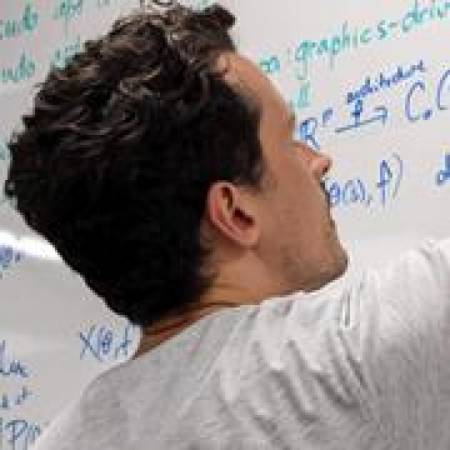Carnegie Mellon University
Self-Supervising Occlusions For Vision
Abstract: Virtually every scene has occlusions. Even a scene with a single object exhibits self-occlusions - a camera can only view one side of an object (left or right, front or back), or part of the object is outside the field of view. More complex occlusions occur when one or more objects block part(s) of [...]
Multi-Sensor Robot Navigation and Subterranean Exploration
Predicting The Future and Linking the Past: Learning and Constructing Structured Models for Robotic Manipulation
Abstract: Intelligent robotic agents need to reason about the dynamics of their surrounding world, and use such dynamics reasoning to make future predictions for efficient task planning. In addition, it is also desirable for robots to associate past experience in their memories to their current observation, and conduct analogical reasoning to complete tasks at their [...]
Carnegie Mellon University
MSR Thesis Talk: Tushar Kusnur
Title: Search-based Planning for Sensor-based Coverage Abstract: Robots are excellent candidates for the dull, dirty, and dangerous jobs we do not want humans to perform. Today, these include inspection of large areas or structures, post-disaster assessment, and surveillance. Assessing the aftermath of the recent Fern Hollow bridge collapse in Pittsburgh is one such example. Many [...]
Human-in-the-loop Model Creation
Abstract: Deep generative models make visual content creation more accessible to novice users by automating the synthesis of diverse, realistic content based on a collected dataset. However, the current machine learning approaches miss several elements of the creative process -- the ability to synthesize things that go far beyond the data distribution and everyday experience, [...]
Robotic Interestingness via Human-Informed Few-Shot Object Detection
Abstract: Interestingness recognition is crucial for decision making in autonomous exploration for mobile robots. Previous methods proposed an unsupervised online learning approach that can adapt to environments and detect interesting scenes quickly, but lack the ability to adapt to human-informed interesting objects. To solve this problem, we introduce a human-interactive framework, AirInteraction, that can detect [...]
Towards a formal theory of deep optimisation
Abstract: Precise understanding of the training of deep neural networks is largely restricted to architectures such as MLPs and cost functions such as the square cost, which is insufficient to cover many practical settings. In this talk, I will argue for the necessity of a formal theory of deep optimisation. I will describe such a [...]
Carnegie Mellon University
MSR Thesis Talk: Nikhil Angad Bakshi
Title: See But Don't Be Seen: Towards Stealthy Active Search in Heterogeneous Multi-Robot Systems Abstract: Robotic solutions for quick disaster response are essential to ensure minimal loss of life, especially when the search area is too dangerous or too vast for human rescuers. We model this problem as an asynchronous multi-agent active-search task where each robot aims [...]
Carnegie Mellon University
MSR Thesis Talk: Yves Georgy Daoud
Title: Spatial Tasking in Human-Robot Collaborative Exploration Abstract: This work develops a methodology for collaborative human-robot exploration that leverages implicit coordination. Most autonomous single- and multi-robot exploration systems require a remote operator to provide explicit guidance to the robot team. Few works consider how to integrate the human partner alongside robots to provide guidance in the [...]
Carnegie Mellon University
MSR Thesis Talk: Ambareesh Revanur
Title: Towards Video-based Physiology Estimation Abstract: RGB-video based human physiology estimation has a wide range of practical applications in telehealth, sports and deep fake detection. Therefore, researchers in the community have collected several video datasets and have advanced new methods over the years. In this dissertation, we study these methods extensively and aim to address the [...]




